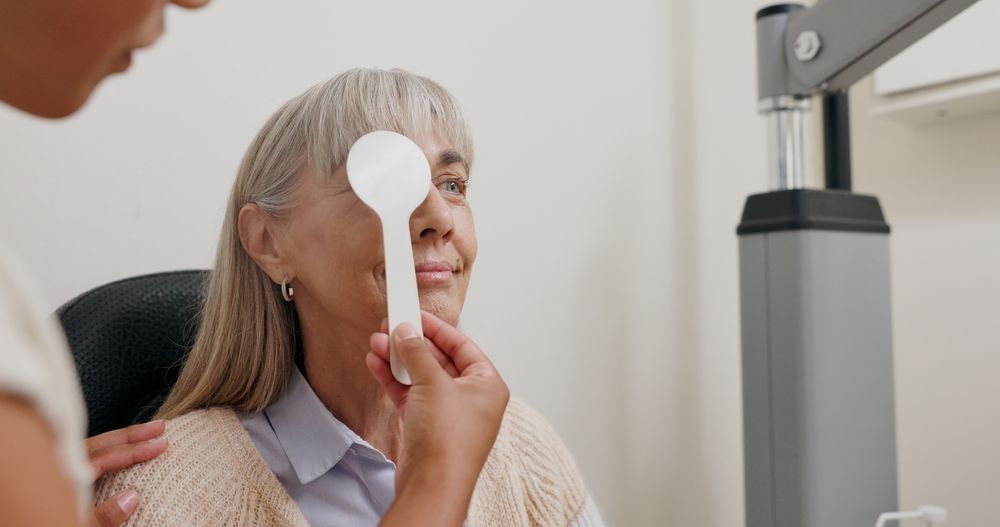Cataracts are one of the leading causes of vision impairment, especially as we age. At Colorado Eye Clinic, located in Greenwood Village and serving nearby Centennial and Southglenn, Dr. Abed Namavari provides expert care for cataracts using a patient-centered approach. With timely appointments, thorough consultations, and same-day accessibility, Colorado Eye Clinic ensures that each patient receives personalized attention and optimal treatment outcomes.
What Are Cataracts?
A cataract is a clouding of the natural lens of the eye, leading to blurry or dimmed vision. This condition develops gradually and often affects older adults, though it can occur at any age due to injury, medication side effects, or underlying medical conditions.
The lens focuses light onto the retina, enabling clear vision. As a cataract progresses, it obstructs this light, making daily activities like reading or driving increasingly difficult.
Symptoms of Cataracts
Recognizing the signs of cataracts is the first step in addressing them. Common symptoms include:
- Blurry or Cloudy Vision: A common hallmark of cataracts is the feeling of looking through a foggy or dusty window.
- Increased Sensitivity to Light: Bright lights or glare, especially at night, can become uncomfortable or impair vision.
- Difficulty Seeing at Night: Reduced low-light vision can make nighttime driving particularly challenging.
- Halos Around Lights: You may notice rings or halos around light sources.
- Fading or Yellowing Colors: Colors may appear less vibrant or take on a yellowish hue.
- Double Vision in One Eye: This can occur as the cataract affects the way light enters your eye.
At Colorado Eye Clinic, patients undergo comprehensive exams to identify cataracts early, ensuring timely and effective care.
Causes and Risk Factors
Cataracts are often associated with aging, but other factors can contribute, including:
- Age: Most cataracts develop after the age of 50.
- Medical Conditions: Diabetes, high blood pressure, or other systemic health issues can increase risk.
- Lifestyle Factors: Smoking, excessive alcohol consumption, and prolonged UV exposure can accelerate cataract development.
- Eye Injuries: Trauma to the eye can lead to cataracts, sometimes years after the injury.
- Medication Side Effects: Long-term use of corticosteroids can increase the likelihood of cataracts.
Dr. Namavari takes the time to review each patient’s medical history and lifestyle to pinpoint contributing factors, offering tailored recommendations for prevention and treatment.
How Colorado Eye Clinic Stands Out
Cataract care at Colorado Eye Clinic is defined by a commitment to excellence and patient comfort. Here’s what sets the practice apart:
- Efficient Appointments: From check-in to check-out, every step of your visit is streamlined, eliminating delays.
- Face-to-Face Consultations: Dr. Namavari dedicates significant time to thoroughly explain your condition and treatment options.
- Same-Day Accessibility: Whether you have a question or require urgent care, you can reach the clinic via text, phone, or email the same day.
This personalized approach ensures that each patient receives attentive, high-quality care.
Diagnosing Cataracts
A proper diagnosis is essential for effective treatment. At Colorado Eye Clinic, the evaluation includes:
- Visual Acuity Tests: Measure how well you can see at various distances.
- Slit-Lamp Examination: A detailed look at the structures in the front of your eye, including the lens.
- Retinal Exam: The dilated eye exam allows Dr. Namavari to examine the back of your eye and assess cataract progression.
- Tonometry: Measuring intraocular pressure helps rule out conditions like glaucoma that could complicate cataract management.
By utilizing advanced diagnostic tools, Colorado Eye Clinic ensures accurate identification and assessment of cataracts.
Treatment Options for Cataracts
While early-stage cataracts may be managed with non-surgical measures, surgery becomes necessary as the condition progresses.
- Non-Surgical Options:
- Stronger Glasses or Contacts: Can help improve vision temporarily.
- Lifestyle Adjustments: Improved lighting and minimizing glare may alleviate symptoms in the early stages.
- Cataract Surgery:
- When is Surgery Necessary? If cataracts interfere significantly with daily life, surgery is the most effective treatment.
- The Procedure: Cataract surgery involves removing the cloudy lens and replacing it with an artificial intraocular lens (IOL).
- Recovery: Most patients experience improved vision within days. Post-operative care ensures a smooth recovery and optimal results.
At Colorado Eye Clinic, Dr. Namavari offers expert surgical care with a focus on safety, precision, and comfort.
Preventing Cataracts
While some risk factors like age and genetics are unavoidable, others can be managed to reduce your risk:
- Protect Your Eyes from UV Rays: Wear sunglasses with UV protection when outdoors.
- Maintain a Healthy Diet: Foods rich in antioxidants, like leafy greens and fruits, support eye health.
- Control Medical Conditions: Properly managing diabetes or hypertension can help prevent cataracts.
- Avoid Smoking and Excessive Alcohol: These habits can accelerate the formation of cataracts.
Dr. Namavari provides personalized guidance to help patients incorporate these preventative measures into their lifestyles.
Life After Cataract Treatment
For many patients, cataract surgery is transformative, restoring clarity and independence. With advancements in lens technology, patients may even experience reduced dependency on glasses for tasks like reading or driving.
Colorado Eye Clinic emphasizes follow-up care to ensure long-term success. Regular check-ups and open communication with Dr. Namavari provide patients with peace of mind and sustained eye health.
Moving Toward a Brighter Vision
Cataracts don’t have to diminish your quality of life. At Colorado Eye Clinic in Greenwood Village, Dr. Abed Namavari provides personalized, accessible, and timely care to help you regain clear vision. From expert diagnosis to advanced treatment options, the clinic is dedicated to enhancing your visual health. Schedule your consultation today and take the first step toward a brighter, clearer future.
Sources
- Lundström, M., Barry, P., Henry, Y., et al. (2017). Evidence-Based Guidelines for Cataract Surgery. Ophthalmology.
- Hecht, I., Shoshany, N., et al. (2018). Impact of Cataracts on Quality of Life. Clinical Ophthalmology.
- Lamoureux, E. L., Fenwick, E., Pesudovs, K., et al. (2011). Vision Loss and Depression in Cataract Patients. Investigative Ophthalmology & Visual Science.

